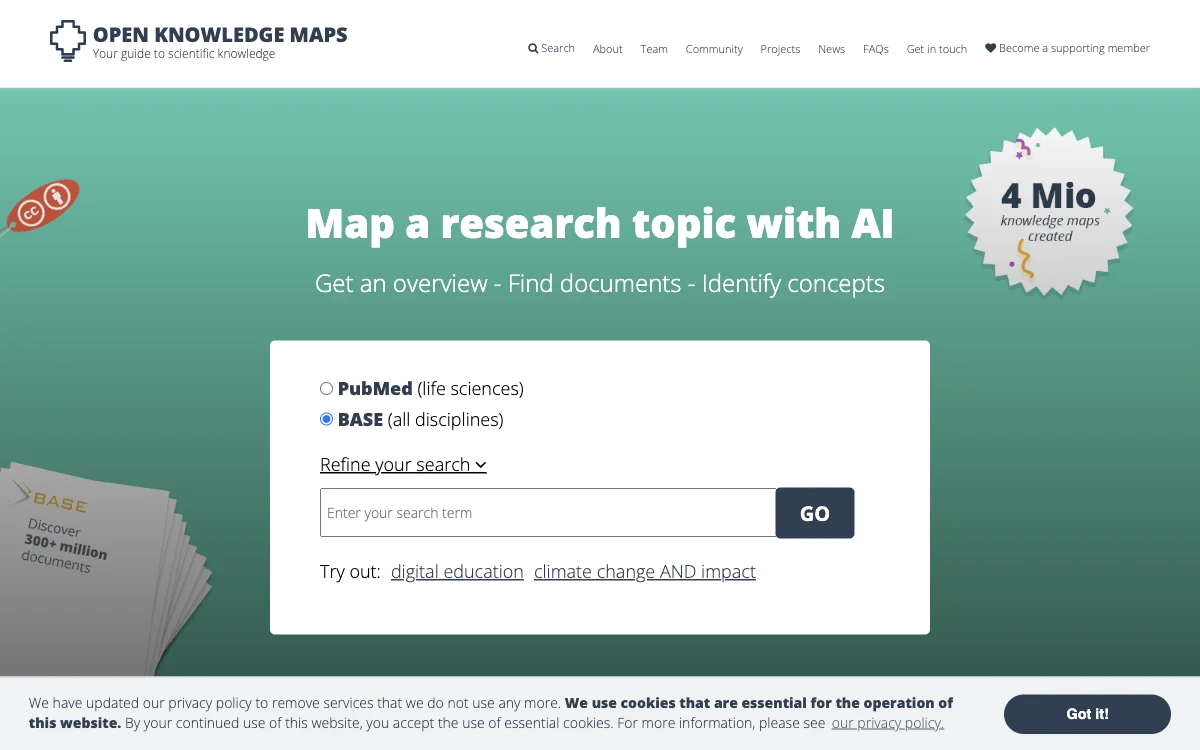Open Knowledge Maps stands at the forefront of scientific discovery, leveraging artificial intelligence to transform how we access and understand research. As the world's largest AI-based search engine for scientific knowledge, it dramatically increases the visibility of research findings, benefiting both the scientific community and society at large. This innovative platform offers users the ability to map a research topic with AI, providing an overview, identifying key documents, and highlighting central concepts across various disciplines, including life sciences and beyond.
At its core, Open Knowledge Maps is driven by a mission to revolutionize discovery. It is a charitable non-profit organization, grounded in the principles of open science. The platform is designed to be inclusive, sustainable, and equitable, ensuring that anyone can access and benefit from its infrastructure. By fostering a collaborative environment, Open Knowledge Maps invites organizations to become supporting members, contributing to the platform's development and sustainability.
The platform's impact is further amplified by its recognition and support from the global community. Users and supporters alike praise Open Knowledge Maps for its innovative approach to literature search, its ability to break down papers into thematic clusters, and its contribution to open science and open access. These endorsements underscore the platform's value as a tool for empowering people around the world with access to knowledge and education.
Open Knowledge Maps also offers custom integrations, allowing organizations to embed its AI-based discovery tools into their own systems. This feature enhances the platform's utility, making it a versatile resource for a wide range of applications. With its commitment to open science, nonprofit status, and innovative technology, Open Knowledge Maps is reshaping the landscape of scientific research and discovery, making it more accessible and impactful for everyone.

